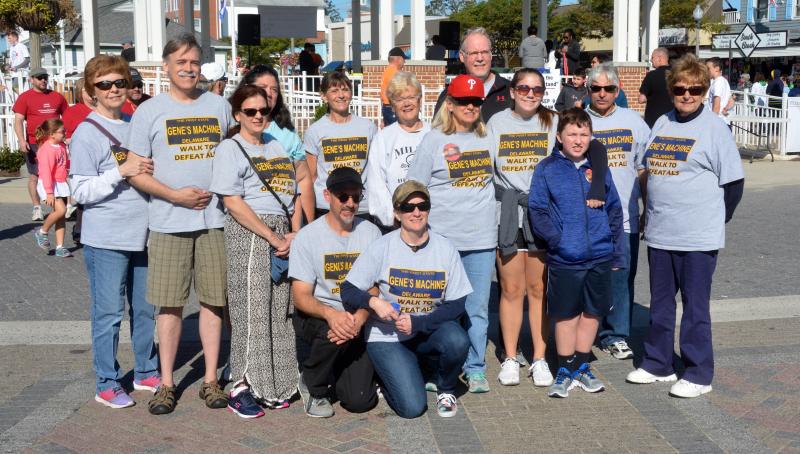People with ALS, family members, friends, caregivers and others affected by Lou Gehrig’s disease will come together for the 2018 Rehoboth Beach Walk to Defeat ALS Saturday, Sept. 8, at the bandstand near the Boardwalk in Rehoboth Beach. Registration opens at 8 a.m. and the walk begins at 9:30 a.m. The event will raise funds for research and community-based patient services programs for people with amyotrophic lateral sclerosis, often called Lou Gehrig’s disease. ALS is a progressive motor neuron disease which causes patients to eventually lose control of all voluntary muscles of the body. The ALS Association Greater Philadelphia Chapter, with financial support from the Walk to Defeat ALS, is the largest organization supporting people with ALS in Delaware.
“Ten years ago, we created the Rehoboth Beach Walk to Defeat ALS to improve the lives of ALS families in Delaware,” said Mary Ann Wollter, who started the walk in 2008 with her daughter Mary Lou in memory of her husband Gene. “With more fundraising and awareness, and help from new walk teams, we can expand care to more families and get closer to an effective ALS treatment.”
ALS was first described in 1869 by French neurologist Jean-Martin Charcot, but it wasn’t until 1939 that Lou Gehrig brought national and international attention to the disease when he abruptly retired from baseball after being diagnosed with ALS. Most commonly, the disease strikes people between the ages of 40 and 70, and as many as 30,000 Americans have the disease at any given time. In May, the FDA approved the first new treatment for ALS in 22 years, Radicava, produced by MT Pharma. For more information on this treatment, go to www.alsphiladelpia.org/radicava.
People with ALS gradually lose the ability to walk, move their arms, swallow, talk and even breathe. Military veterans are twice as likely to develop ALS compared to the general population. While research is increasing understanding of the disease, ALS currently has no effective treatment or cure. Without mechanical ventilation, the average life expectancy for a person with ALS is two to five years after diagnosis, although some people live more than 10 years.
The ALS Association and its local chapters are leading the fight to treat and cure ALS through global research and nationwide advocacy while empowering people with the disease and their families to live fuller lives by providing them with compassionate care and support. For more information or to register, go to www.rehobothwalktodefeatals.org.


















































